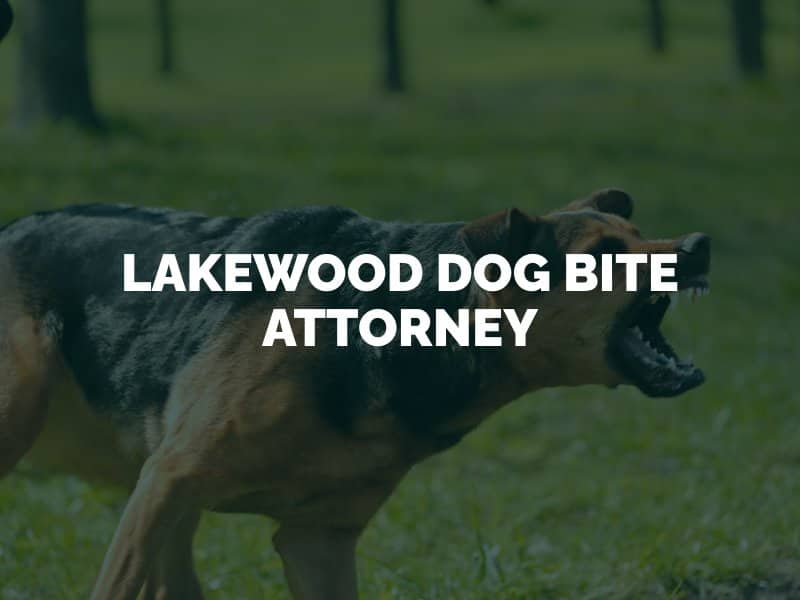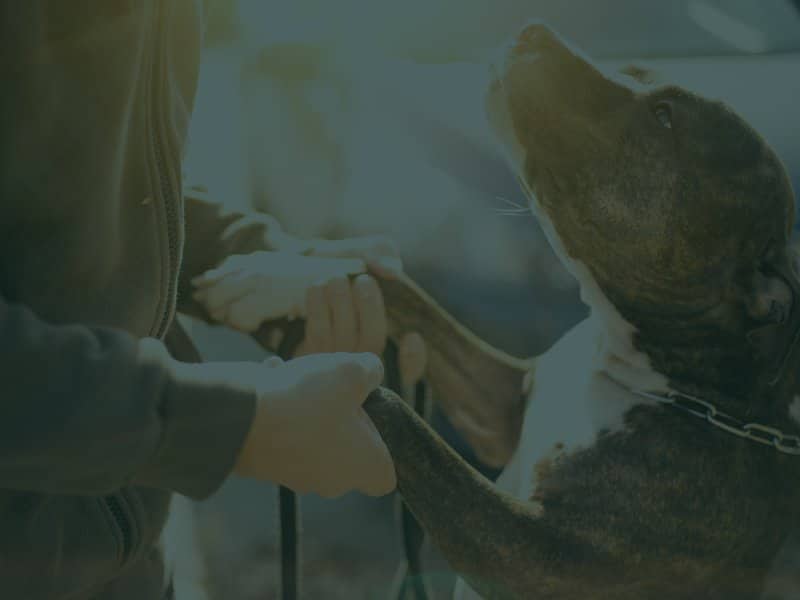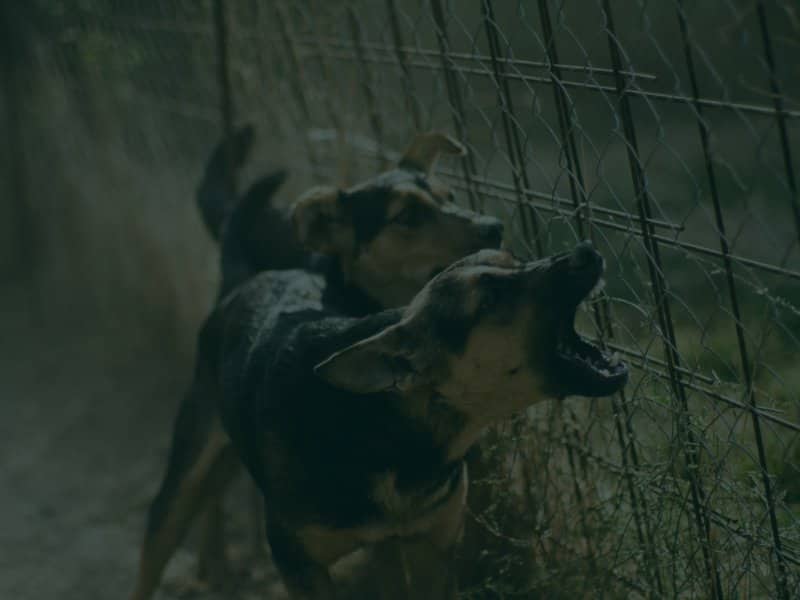If you, your child or another loved one recently suffered an injury from a dog attack, contact the Lakewood dog bite lawyers at Fang Law Firm for assistance. When a dog attacks and a dog bite injury occurs, the victim can suffer not only painful and disfiguring wounds but also serious emotional distress, including post-traumatic stress disorder or a phobia of dogs. We are experienced and dedicated dog bite injury attorneys in Colorado with a track record of success.

Hiring a Lakewood personal injury lawyer can benefit you during any type of accident or injury claim. If your injuries are serious, such as permanent scarring or disfigurement from a dog attack, it is even more important to protect yourself by hiring an attorney. Your lawyer can investigate the dog attack, collect evidence and handle the claims process on your behalf.
If you don’t hire a lawyer, an insurance company is more likely to take advantage of you. This could result in you accepting an insurance settlement that undervalues your losses. With a lawyer by your side, you can fight for the financial compensation (damages) that your family needs to move forward.
The damages that you may be eligible to recover during a Colorado dog bite injury claim will depend on the specific ways in which the attack has impacted your life. Our Lakewood dog bite attorneys can help you create a comprehensive list of all of your compensable losses during a dog bite injury claim, including:
Our Lakewood dog bite lawyers at Fang Law Firm will do what it takes to collect fair and full financial compensation for the losses that you suffered because of a dangerous dog. We can accurately calculate the value of your injury claim, protect you from inadequate settlement offers and combat bad-faith tactics often used by insurers.
Taking the correct steps after being involved in a dog attack in Lakewood can make a big difference to your future. Going to a hospital right away, for example, can help you prevent infections and other serious complications. Gathering information and evidence can protect your right to recover financial compensation from the pet owner’s insurance provider.
The first two steps you should take after a dog attack are to remain calm and assess yourself for injuries. Get to a safe place, away from a wild or stray dog. Then, do your best to collect information and evidence while it is still available. The more information and documentation you collect, the stronger your dog bite injury claim will be. Gather the following facts after a dog attack in Lakewood, if possible:
If you are too injured to exchange information with the pet owner, have someone do so for you. You can also call 911 for a law enforcement officer to help you document the incident if it is an emergency. Next, go to a hospital in Lakewood without delay for professional medical care. Do not attempt to dress your wounds at home, as you could be at risk of disease and infection. Report the dog bite to Lakewood Animal Control for their records. Finally, when you are ready to pursue financial compensation for a dog bite injury, contact Fang Law Firm to schedule a free consultation with an attorney.
Liability, or legal responsibility, for a dog bite injury in Colorado goes to the pet owner, in most situations (Colorado Revised Statute Section 13-21-124). Colorado is a strict dog bite liability state, meaning a pet owner is responsible when his or her dog bites a person – as long as the victim was on public property or lawfully on private property and the victim did not provoke the dog. Strict liability means that the pet owner must pay for injuries and property damage caused by the dog, even if the dog had never before shown vicious tendencies.
The strict liability law is different from the one-bite rule that exists in many other states. A one-bite rule holds that a pet owner must have known – or had reason to know – about the dog’s vicious propensities to be held liable for an attack. In addition, Colorado law gives victims no more than two years from the date of an attack to file a personal injury claim against a pet owner or another responsible party. If you miss this deadline, you will most likely forfeit the right to obtain financial compensation in Colorado.

As a dog bite injury victim in Lakewood, you generally do not have to prove the dog owner’s negligence or fault in connection to the attack to qualify for financial compensation. However, if you cannot base your claim on the legal doctrine of strict liability, you or your lawyer may need other grounds. You may need to determine if the pet owner broke one of Colorado’s dog laws, for example, such as a leash law, and if this caused or contributed to your injury.
In Colorado, the state’s animal ordinance does not have a universal (statewide) leash law or dog control requirement. Instead, it says that any county may adopt laws that require dogs and other pet animals to be under control at all times. County boards also have the right to define “control” and establish any reasonable regulations and restrictions for the control of dogs. If you plan to base your case on a pet owner’s failure to properly control a pet, therefore, you will need to explore your local dog laws.
Municipal law in Lakewood requires all domestic animals (except for cats) to be effectively controlled at all times. This means that all domestic dogs must be kept on a leash, chain or cord of reasonable length. It is against city law to walk a dog in a public place without using a leash or another form of physical control, even if the animal obeys voice commands. The only exception is if the dog is taken to a designated off-leash dog park. If a pet owner was walking his or her dog without a leash in Lakewood at the time of an attack, this could be evidence of negligence.
While a dog can be off-leash on private property, Lakewood, Colorado Municipal Code, Title 6, states that it is unlawful for the owner of a dog to permit the animal to run at large within the city. Running at large means a dog is off the premises of the owner and not under the owner’s effective control. Habitually running at large means an animal is consistently not within the control of its owner – it runs at large at least three times within a year. Pet owners must keep their dogs within their control at all times in public places, such as by using a leash, cord or chain.
Breaking Lakewood’s dog laws could place liability for an animal attack on the pet owner based on negligence per se. Negligence per se means that a defendant who violates a law, statute or regulation is automatically considered to have breached his or her duty of care, and will therefore be considered negligent for the purposes of personal injury law. If your dog bite injury case involves negligence per se, you do not need to prove that the pet owner was negligent in any other regard.
You may need a lawyer to help you with a dog bite injury claim for many reasons. One is the level of injury. Brutal dog attacks can be extremely physically and psychologically damaging. Unfortunately, insurance companies often downplay these events and devalue claims to save money. You may need an attorney’s skill and knowledge to help you demand fair financial compensation for the full extent of your injuries. When a dog decides to attack, it can inflict injuries such as:
No matter what type of injury you or a loved one suffered in a dog attack, you may be entitled to financial compensation for your related expenses and losses. The severity of your injury can determine the value of your case; in general, life-threatening or catastrophic injuries are worth more in Colorado than minor injury claims. Your family could be eligible for significant compensation for a catastrophic injury or the wrongful death of a loved one in a violent dog attack. Discuss your injury claim with a lawyer after any type of injury diagnosis.
A dog attack can result in serious physical injuries as well as emotional harm. Common examples of injuries include lacerations, puncture wounds and degloving. As if these injuries were not enough on their own, they can also come with a significant risk of complications due to bacteria deposited in the wound by the dog’s mouth and saliva. A victim could suffer a serious infection, including tetanus, rabies or sepsis.
Even if a dog bite injury victim does not develop an infection or disease from the injury, he or she may have to deal with other complications, such as long-term nerve and muscle damage, broken bones, and scarring or disfigurement. In addition, many dog bite injury survivors face emotional and psychological complications, such as post-traumatic stress disorder or a new phobia of dogs.

While Colorado’s strict liability law typically means a dog owner is responsible for a bite injury, there are defenses that a defendant can use to avoid liability. For example, a pet owner may be able to use the defense of trespassing on private property. For the strict liability law to apply, the victim must have lawfully been on the property. The use of a “Beware of Dog” sign on the premises could also protect the property owner from liability, depending on the scenario.
Another common defense is that the victim provoked the dog. An injured victim may not have grounds to hold a pet owner responsible for an attack that was instigated, such as if the victim injured or annoyed the animal. Finally, it is possible for an owner to claim that the dog was working as a police or military animal to avoid liability for a dog bite injury. You may need to hire a Lakewood dog bite attorney to help you combat these defenses.
A dog bite injury claim in Colorado can be confusing and difficult to litigate. If there is some reason why the strict liability doctrine does not apply to your case, for instance, you may need to prove that the pet owner was negligent (failed to use a proper amount of care). Working with a dog bite lawyer in Lakewood from the beginning of your case can help you build a stronger claim to damages.
The attorneys at Fang Law Firm have over a decade of experience handling dog bite injury claims throughout Colorado and fighting for maximum results. Find out how we can help you after a dog attack today – request a free consultation online or at (720) 379-6363.